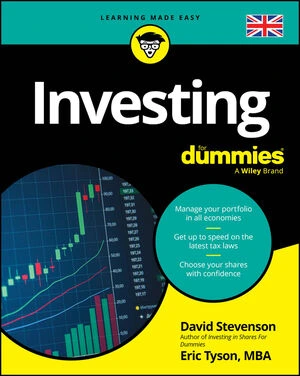Saving money by using artificial intelligence
Artificial intelligence is a groundbreaking technology that’s constantly changing. Here are several ways that consumers and investors can save money using AI:
- Save money on financial advisor fees. AI can analyze your portfolio or give you a detailed report on any position in your brokerage account. Specialized AI tools such as robo-advisors can be suitable for experienced investors to help them reduce investment advisory fees.
- Save on taxes. AI can help you prepare and analyze all your tax data with Excel so you can find tax deductions and credits to save big on your taxes. AI can also help you understand complex tax rules and new tax law changes so you don’t overpay on your taxes.
- Save on legal fees. Before you spend too much on legal services, keep in mind that AI can analyze and summarize legal documents. It can also create documents such as agreements, simple wills, and other legal documents.
- Save money on tutors. AI can train you on either simple skills or complex subject matter (such as chemistry or math). AI can also give you detailed explanations of a given term, issue, or concept in your subject.
- Save money on gift buying. If you have a limited budget, you can ask AI to provide an extensive list of gifts that fit your budget and your special occasion. An example prompt is “I am on a tight budget. It’s my son’s birthday, so please provide a list of 20 impressive gifts that are $50 or less.”
- Do a financial plan. Financial planners can charge hundreds for a financial plan, but AI-enhanced financial software can take your data and prepare a professional-level financial plan easily.
- Translate languages. AI can help you understand phrases and dialogue in virtually any major language. It can even teach you an entire language. Language tutors, classes, and software can be expensive, but AI can do this for free.
- Help you manage your debt and credit. AI-powered apps can alert you to pending issues with credit and debt and also help you manage your spending so it doesn’t harm your finances.
- Save big on year-round deals. AI can help you learn what products and services are either too high or are screaming bargains in every month and season through the year to help you save hundreds (or more) in your budget.
- Eat out for less. You can ask AI about easy and delicious recipes just by listing what ingredients you have, and it will give you many inexpensive ideas for eating at home.
Studying economic data with artificial intelligence
AI can explain economics (and make it useful to you) so that you can make better investing decisions with your portfolio and financial goals. Here are a few economic terms to drill down on with AI:
- Gross Domestic Product (GDP): Analyze it and make it understandable. Have AI analyze current data for you so you can create a strong stock and exchange-traded fund (ETF) portfolio.
- Leading Economic Indicators (LEI): Get to know how the LEI work and what to look out for so that you can stay a step ahead of today’s market.
- The labor market: If it’s good — or bad — AI can help you position yourself so that your investments aren’t blindsided by the latest job market issues.
Asking AI about fundamental and technical analysis
You’ll have a tough time investing for the long term if you aren’t familiar and comfortable with fundamental analysis. AI can help you with the following:
- Understanding profitability and how that propels a company forward (along with their stock!)
- Knowing the price-to-earnings (P/E) ratio, which is paramount for sound investing
- Analyzing a stock’s industry — if you have a winning stock in a solid industry, you’ll succeed
A second area to be aware of is technical analysis. Yes, it can be a little complicated, but AI can break it down so you’re clear on how it works and how to use it. You can get a handle on the following:
- The relative strength index (RSI) and how that can help you time your buy (or sell) move for optimal profits
- Moving averages and how stock traders use them for optimal entry and exit points






